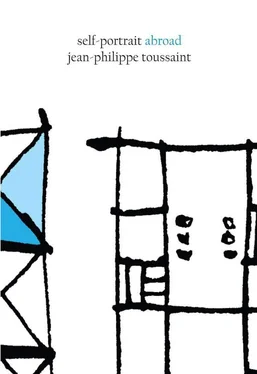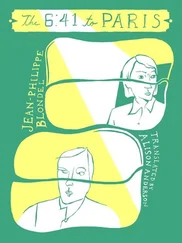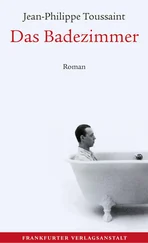Jean-Philippe Toussaint - Self-Portrait Abroad
Здесь есть возможность читать онлайн «Jean-Philippe Toussaint - Self-Portrait Abroad» весь текст электронной книги совершенно бесплатно (целиком полную версию без сокращений). В некоторых случаях можно слушать аудио, скачать через торрент в формате fb2 и присутствует краткое содержание. Год выпуска: 2010, Издательство: Dalkey Archive Press, Жанр: Современная проза, на английском языке. Описание произведения, (предисловие) а так же отзывы посетителей доступны на портале библиотеки ЛибКат.
- Название:Self-Portrait Abroad
- Автор:
- Издательство:Dalkey Archive Press
- Жанр:
- Год:2010
- ISBN:нет данных
- Рейтинг книги:3 / 5. Голосов: 1
-
Избранное:Добавить в избранное
- Отзывы:
-
Ваша оценка:
- 60
- 1
- 2
- 3
- 4
- 5
Self-Portrait Abroad: краткое содержание, описание и аннотация
Предлагаем к чтению аннотацию, описание, краткое содержание или предисловие (зависит от того, что написал сам автор книги «Self-Portrait Abroad»). Если вы не нашли необходимую информацию о книге — напишите в комментариях, мы постараемся отыскать её.
, our narrator — a Belgian author much like Toussaint himself — travels the globe, finding the mundane blended everywhere with the exotic: With his usual poker face, he keeps up on Corsican gossip in Tokyo and has a battle of nerves in a butcher shop in Berlin; he wins a boules tournament in Cap Corse, takes in a strip club in Japan’s historic Nara, gets pulled through Hanoi on a cycle rickshaw, and has a chance encounter on the road from Tunis to Sfax. Tales of a cosmopolitan at home in a strangely familiar world,
casts the entire globe in a cool but playful light, reminding us that, wherever we go,we take our own eyes with us…
Self-Portrait Abroad — читать онлайн бесплатно полную книгу (весь текст) целиком
Ниже представлен текст книги, разбитый по страницам. Система сохранения места последней прочитанной страницы, позволяет с удобством читать онлайн бесплатно книгу «Self-Portrait Abroad», без необходимости каждый раз заново искать на чём Вы остановились. Поставьте закладку, и сможете в любой момент перейти на страницу, на которой закончили чтение.
Интервал:
Закладка:
vietnam
Francophonie is on the decline in Vietnam, as I ascertained on a ten-day study trip to Hanoi. Just off the plane on the evening of my arrival, my flexible black travel bag in my hand and a bead of sweat on my forehead — stoic, immobile, looking around for my hosts in the jostling nocturnal bustle of the arrival gate, I was accosted by an eager and amiable Vietnamese man. Möchten Sie ein Taxi? he asked me. Nein, danke , I said to him in my German, which was getting worse with every passing day. Um nach Hanoi zu fahren , he added, inviting me to follow him. Nein, ich danke Ihnen , I said. I didn’t need a taxi (in principle I was being picked up by someone from the French embassy). I got up on tiptoes and looked around once more for my host. Nothing. Es ist nicht teuer , the taxi driver insisted, fünfundzwanzig Dollar. Aber ich brauche kein Taxi , I said. Woher sind Sie in Deutschland? he asked. Und Sie? I answered. He looked at me. (It seemed he wasn’t German either.)
People in Hanoi tend to get around by motorcycle. The very first time I myself got on one was also in Hanoi, behind Solange. Solange, who’d come to pick me up at the hotel to take me on a tour of the city, had proposed I get on the back of her little Honda, and I’d swung one leg in the air and over the seat with my accustomed ease, a bit like the way I’d heard you straddle a pony (although I’m not much of a horseman either), and once in the seat, not terrifically reassured, I’d propped my two feet on the footrests. Then, as she abruptly pulled away and veered resolutely into the traffic, I completely lost my balance and, not knowing what to do with my hands, after a quick look around, my goodness, I put them on Solange’s hips. Actually, I found that very pleasant, driving around Hanoi holding Solange by the waist and talking in her ear in a low voice, feeling the very light fabric of her dress under my fingers. I later found out, however, that it was not exactly done to hold your driver by the waist like that when you were not at all on familiar terms, nor was it proper to close your eyes and rest your head in a melancholy way on her shoulder (mentally humming some Italian serenade), and that in fact there was a handle to grab onto on the back of the bike. Behind Professor Bich, moreover — a professor of comparative literature who was kind enough to take me to visit a historic village just outside Hanoi the following weekend — already better-acquainted with motorcycle etiquette, I didn’t have the slightest urge, not even the hint of a temptation, to hold him by the waist. Nguyet, for her part (what an urbane life I lived in Hanoi: Solange, Nguyet, Professor Bich; and that’s only to name the ones who shared the favor of their motorcycles with me for a few moments), who was no taller than four foot eleven and weighed eighty-eight pounds at the maximum, had no end of difficulty transporting me — at twice her weight — on her own motorcycle. At first she suggested I drive (don’t even think about it! I said, looking at the contraption), then, as she could tell that I was hardly about to give in on this point, we finally set out, she kicked the motorcycle off its stand and pushed it onto the street. Our departure was hesitant, laborious even, we both ran along beside the motorcycle to get it up to speed like a bobsled before jumping onto the seat and zigzagging for fifty or sixty feet down Tran Nhan Tong Street. Finally we got stabilized, Nguyet in front, very serious, sitting perfectly straight on the seat and gripping the handlebars with both hands. Then, as we slowed down to approach an intersection, leaning dangerously to one side or the other as we lost speed, Nguyet tried to keep the motorcycle straight while I, immobile behind her, said to myself, “We’re going to fall, we’re going to fall” (what a mistake, what a mistake to have accepted this invitation to Vietnam). I was preparing to jump clear when I heard the terrifying honk of a truck just a few feet away, however after a final sinuous, ellipsoid loop we elegantly avoided the impending danger, picked up speed and weaved our way once more into traffic.
In Hanoi, the traffic punctuates each hour of the day and almost every hour of the night. The noise of car horns never stops in the streets, it forms a permanent background noise like an uninterrupted murmur that you could almost forget if it didn’t keep coming back at you, it being precisely the function of horns to attract attention, to signal and warn, to drown each other out, out-honk one another. Thousands of horns blow without a moment’s silence on the streets, shrill and loud, sharp and repetitive, insistent, some quick and piercing, fired off nearby in short impatient salvoes, others remote, lost, muted by their distance, mainly from mopeds and motorcycles, but also from cars and taxis, tarpaulined trucks and three-wheeled vehicles, buses and vans and sometimes even — lost in the middle of an intersection, hardly audible in the surrounding turmoil — the delicate and isolated tinkle of a bicycle bell.
The traffic in Hanoi is like life itself, generous, inexhaustible, dynamic, in permanent motion, constant imbalance, and slipping into its midst and becoming one with the chaos gives you an intense feeling of being alive. Very often, seated in the back of a cycle rickshaw, I let myself be carried along the streets of Hanoi for hours at a time, abandoning myself to the random succession of crossroads and avenues. I was in the very heart of the traffic, sitting on a moving seat, my arms on the armrests, my feet resting on the small curved grid of the rickshaw seat, with no external protection and within arm’s reach of the other bicycles, of the honking motorcycles, of the cars, trucks, and buses passing us, of women stranded in the middle of the traffic, lost, hesitant, a straw hat on their heads and a large flexible bamboo pole resting on their shoulders, eyes darting around, looking for an opportunity to cross the street. I glided over the roads, my feet gently brushing the asphalt, letting myself be pulled along by the traffic and the flow of time, I accepted the movement of life and accompanied it without resistance, my thoughts themselves eventually melting into the flow of traffic. Sometimes I took off one of my shoes and crossed my legs in the basket of the rickshaw, leaning my head back and letting it lie motionless on the seat, my sunglasses weightless on my cheeks. Everything was fluid around me, everything flowed listlessly in the surrounding warmth, time and the traffic, life and the hours of the day, my loves and youth itself, I made no effort to hold time back, I consented to get older, accepted the idea of death with serenity. Time passed and I couldn’t do a thing about it, I was pulled along in the flood of Hanoi traffic, and all of that intense stream of traffic flowed along with me in the streets like water in a torrential riverbed, never meeting any obstacles, always avoiding them, sweeping around them and continuing on its way, ever curving, always finding new directions and advancing without resisting or forcing anything, imposing on nothing and nevertheless irresistible, imperious, with the force of the wind, the necessity of the tides.
The day after our arrival in Hanoi our delegation was received at the Writers’ Union for an informal meeting with our Vietnamese colleagues (we were a bit like the three musketeers, the four of us who’d come from Paris to speak at this cultural event). We’d taken our places in a large impersonal meeting room on the first floor of a modern building with an archway and balcony, it could have been in East Berlin ten years ago if it hadn’t been for the heat, which was, believe it or not, even more oriental and overbearing than it was in Berlin, with Formica furniture and tulle curtains in the large windows, a gray carpet, microphones on the tables (and perhaps in the walls as well), three or four bouquets of flowers placed here and there, and a small rostrum, a simple conductor’s stand with a vase and a microphone for the speaker. On the wall behind it, in large plastic letters stuck to the wall, was written a welcome message surrounded by a bouquet of accents: Gap go nha van viet nam va cac nha van phap . 3.10.1995. Okay, fine. I’d taken a seat in the middle of one of the arms of the large U that made up the immense working table of the conference hall, on the French side of course, between Olivier Rolin and Tahar Ben Jelloun, and across from us at the other leg sat a row of Vietnamese writers in grayish short-sleeved shirts, grave and impenetrable, who stared at us from behind huge spectacles. Vietnamese writers are generally classified by generation, and we had four generations of Vietnamese writers there in front of us, from the oldest who’d seen the French colonization to the youngest who’d fought against the Americans. Right across from me, pale, bald, and fragile, was a writer of the first generation; another, beside him, of the second generation, almost blind, was squinting straight at me. At the end of the arm of the U, at the glove, let’s say, sat the French ambassador, impassive, placidly sucking on a cough drop. Then came the rest of us, the participants, almost all of us were there, three out of four (the fourth was still sleeping at the hotel), calm and serious, somewhat perplexed, with faces and eyes alert — a bit too alert, in fact. Once we’d all sat down around the large U-shaped table our host, the General Secretary of the Writers’ Union, went and stood at the rostrum accompanied by a small and trembling interpreter in a short-sleeved grayish shirt who translated his words nervously as he spoke. Once he had finished it was time for a representative from the ministry to take the floor who, getting up and heading over to the rostrum, started to read a very long and very official speech on literature and national character, at least six pages which he read right to the end despite occasional breakdowns in the sound system, which started to crackle and then screech. After ten or so minutes no one was listening anymore to what he was saying, and several little bits of paper traveled discreetly up and down the table, from the cultural counselor to the head of the book office or from the head of the book office to the cultural attaché, which we had to hand along to the person next to us as they passed, whereupon the lucky recipient casually opened the little note between his fingers and read it pensively, thumbs pointed outwards and eyes unfocused, while pretending to be listening attentively to the speaker. At one point, as the speech wore on and on, we saw the door of the conference hall open quietly and two young women appear in the room, distractingly silent and discreet, who with a furtive swishing of their silk tunics started to clear away the teacups we’d been given on our arrival, replacing them with cans of soft drinks and Tiger, the Singaporean beer (although it was just after nine in the morning), before bringing us soup bowls, salads, and spring rolls, cold meats, rice, and raw vegetables. There were several courses which I helped set in front of us on the table, plates of cold pork and small dishes of pâté, toast, and ravioli, as well as small vodka glasses in which they started to pour whiskey, or cognac, depending on which bottle they happened to be holding, so that we could toast later on to friendship and literature (there was something vaguely Lithuanian about all this, not to say frankly pleasant). Soon our hosts casually started opening bottles of beer and pouring them discreetly into their glasses while keeping one eye on the stand where the ministry representative was now explaining that autumn, in Vietnam, was the season of poetry and revolution (oh, the timing couldn’t be better, what a good thing we’d come in autumn), and I brought the bowl of soup to my lips to take a sip, blowing cautiously on the surface of the piping-hot liquid. The ministry representative finished his speech to a salvo of applause and the floor was handed over to the French ambassador. Very tall and with wavy black hair, the French ambassador got up and went over to the rostrum, sized us all up, and plunged straight into his speech, a blend of Racine and grunge, with large hands and burning eyes, his voice hoarse and raspy as if it had been scratched by his eucalyptus candy, all of which gave his speech — which was otherwise perfectly suited to the occasion — an extravagant Gaullian touch marked by occasional peaks of enthusiasm paying tribute to the radiant influence of the French presence in Asia (perhaps radiating would be a better word, I thought, what with the renewed French nuclear tests in the Pacific). Our Vietnamese hosts listened solemnly, nodding their heads in approval, and even jotted down a few notes now and then (writing sagely in their notebooks, “not only economic, but also cultural radiance” and underlining “cultural”). I didn’t know if I was dreaming, at the time, or hallucinating, if she was there with one of our group or just by chance, but in that very conference room where our studious gathering of writers and diplomats had convened for a morning’s work, separated from us by only a few Vietnamese colleagues, translators, and linguists, there, I swear, I saw Jane Birkin too.
Читать дальшеИнтервал:
Закладка:
Похожие книги на «Self-Portrait Abroad»
Представляем Вашему вниманию похожие книги на «Self-Portrait Abroad» списком для выбора. Мы отобрали схожую по названию и смыслу литературу в надежде предоставить читателям больше вариантов отыскать новые, интересные, ещё непрочитанные произведения.
Обсуждение, отзывы о книге «Self-Portrait Abroad» и просто собственные мнения читателей. Оставьте ваши комментарии, напишите, что Вы думаете о произведении, его смысле или главных героях. Укажите что конкретно понравилось, а что нет, и почему Вы так считаете.












